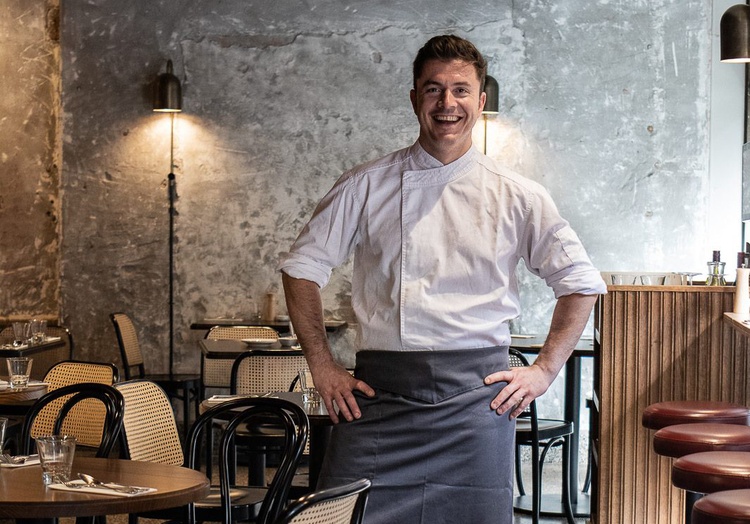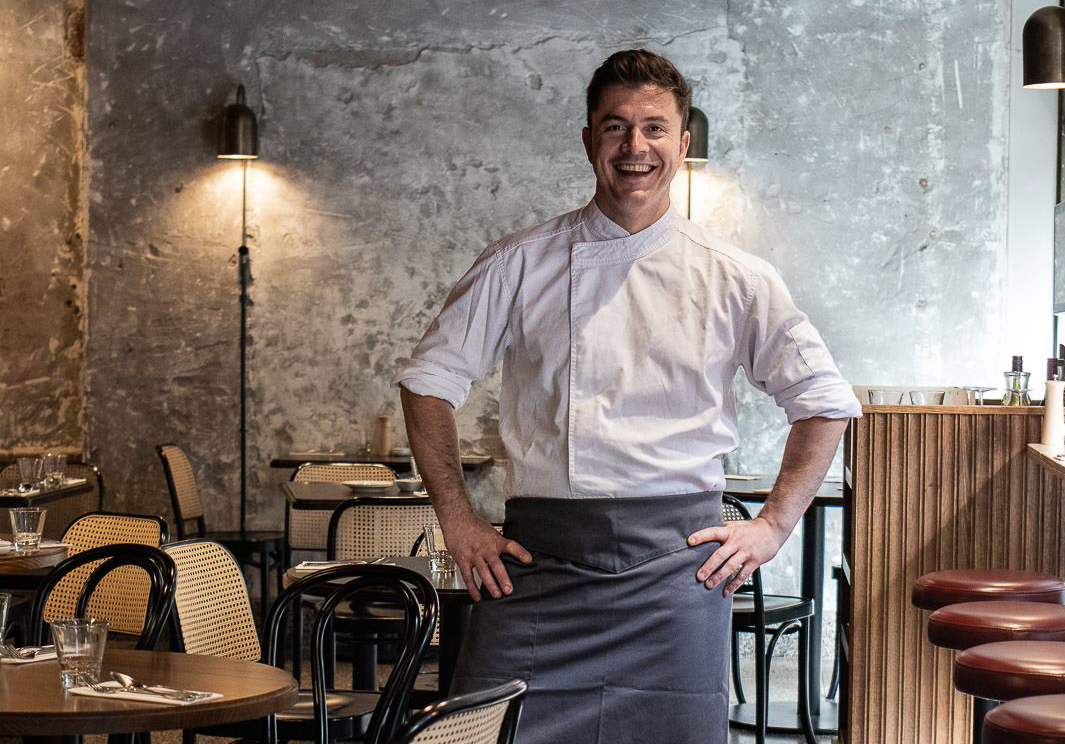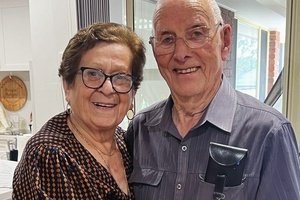Encouraged by his Uncle Aldo, he learned how to forage for vegetables in the countryside and quickly discovered his passion for cookery.
When he was only 15 years old, Olivieri began working as a commis chef in Cattolica.
For the next few years, he began training at the Savioli Institute in Riccione, before going on to study French techniques at the institution’s sister school in Montreal.
Having completed his formal schooling, Olivieri commenced a role as chef de partie at the Carducci Hotel in his hometown, where he soon worked his way up to sous chef.
The young chef hadn’t quite satisfied his wanderlust and when he was offered a position at Romagna Mia in Toronto, he upped and moved back to Canada.
At only 24 years old, Olivieri secured a position as sous chef at the Relais Santa Croce Hotel in Florence, dreaming of one day working in a Michelin-starred restaurant.
“The restaurant had just opened when I began working there,” he says in an interview with Rete Italia.
“When I eventually worked in a Michelin-starred restaurant, I learned a lot – not only about cooking – but also about the organisation of work.”
Olivieri then travelled to London, where he met Australian chef David Thomas, who offered him a position in his Michelin-starred restaurant, Nahm, which specialised in traditional Thai food.
“Everything was different from what I was used to, in that kitchen,” Olivieri says.
“The flavours, aromas and ingredients were completely foreign to me.
“The chef asked me to go and get some lemongrass from the fridge one day, and it took me 10 minutes to realise what he was asking for.
“After a few months, I familiarised myself with the ingredients and I moved from section to section: curry, stir-fry, etc.
“It was a very important experience for me, working with a chef of David’s calibre.
“He is a legend of the international culinary scene; it was a great honour for me.”
Several Australian chefs worked at Nahm and they suggested that Olivieri’s next destination should be Australia.
So, 15 years ago, Olivieri arrived in Melbourne.
He began work at the famed Ezra restaurant, but his experience there was cut short due to a back injury.
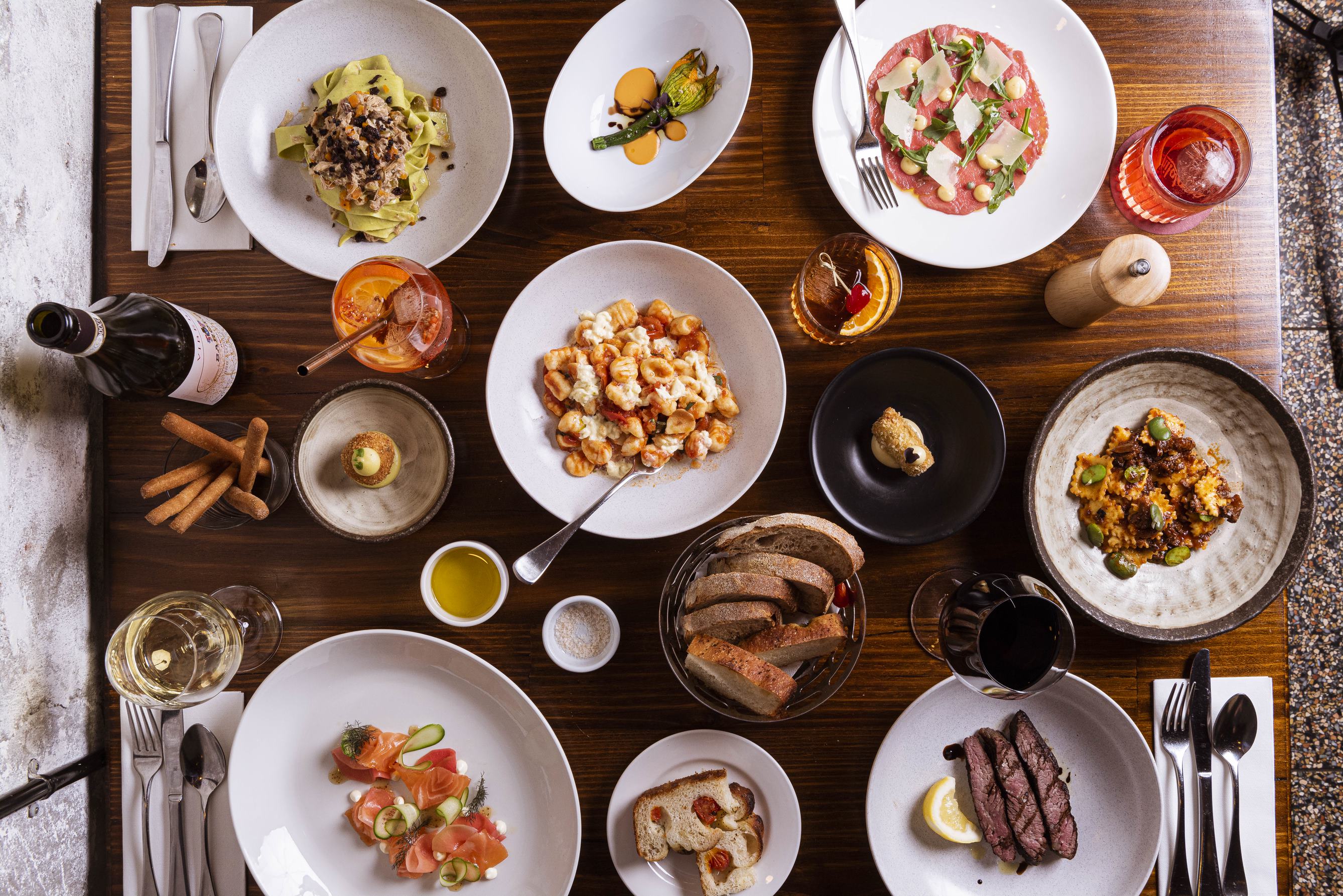
Dishes from Pentolina’s menu
When he had recovered and was ready to return to work, Olivieri began cooking at Cecconi’s and stayed there for two years as part of his working-holiday visa.
His next post was at Bottega Restaurant, where he remained for another four years.
After becoming an Australian citizen, Olivieri returned to his first love: travel.
The chef toured South America, visiting Costa Rica, Peru and Brazil, occasionally returning home to Italy to work over the summer.
He moved back to Australia in 2018 and began working as head chef at Pentolina, founded by lawyer Julia Picone.
Picone, a native Melburnian, has a great passion for the Italian language, which she perfected while studying in Florence.
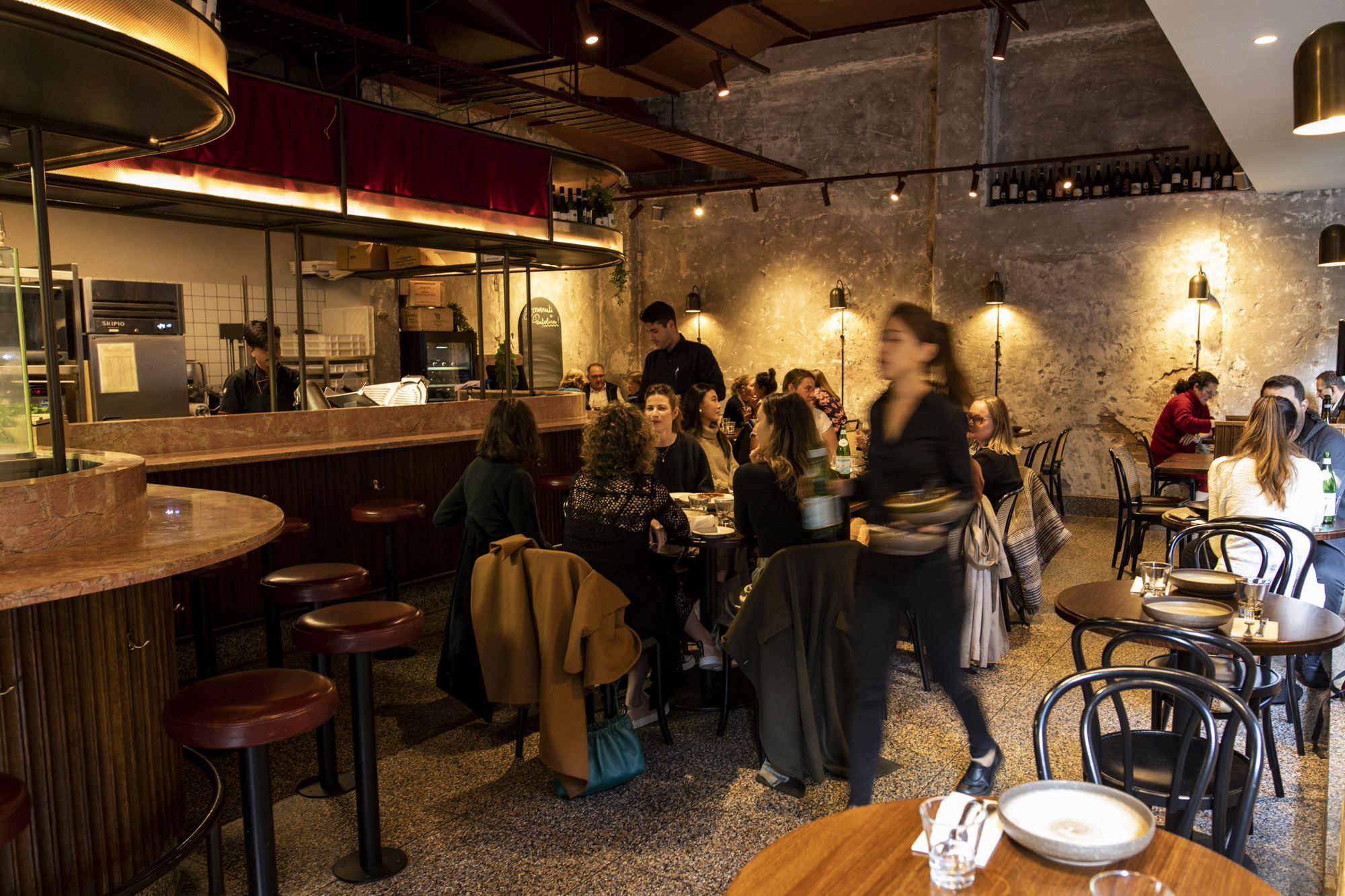
Pentolina – Fresh Pasta & Bar
“Pentolina serves appetisers, including carpaccio, arancini, zucchini flowers, fritto misto and burrat, hand-made pasta, such as: tagliatelle with ragù, squid-ink spaghetti with saffron, pappardelle with rabbit sauce and olives, and desserts like tiramisù, limoncello semifreddo and orange crème brulée,” Olivieri says.
“Everything is prepared simply and I put huge emphasis on working with ingredients that are fresh, in season, and of the utmost quality.
“During the periods of lockdown, we only had 20 or 30 covers a day, so we offered main meals, but now that there are no restrictions on the amount of people, it’s difficult because the kitchen is small.”
Pentolina’s wine list is in the process of being expanded, while the cocktails have an all-Italian flavour, utilising Tassoni Cedrata and limoncello in their spritzes.
The pastas on offer are traditional, well-loved classics, but lesser-known specials grace the menu from time to time.
These include strozzapreti and spoja lorda – or ‘dirty pastry’, translated literally – which is a dish made from scraps of pasta, usually the offcuts from making ravioli, served in a broth.
“These types of dishes are not typical in Australia,” Olivieri says.
“Passatelli, for example, are long, narrow cylinders of breadcrumbs, eggs and parmesan, which can be served both in broth and dry.
“I also make them for the staff, who weren’t too sure about including them on the menu.
“If you come and visit me, I’ll make them for you and we’ll have them with a good glass of wine!”
The author is looking forward to accepting the chef’s invitation, as he has not tasted passatelli for 50 years.

